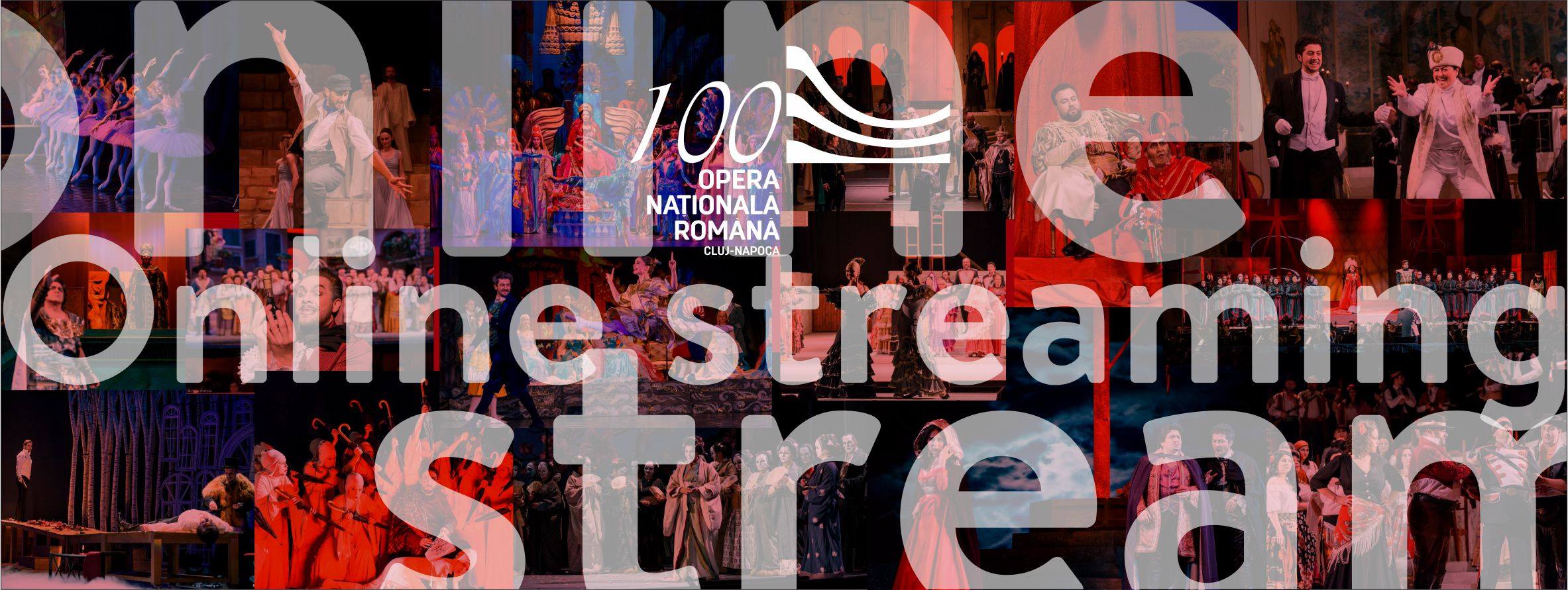
ONLINE PERFORMANCE
distribution
Artistic Director: PhD. arh. Cătălin Ionescu Arbore (guest)
Scenography: Adriana Urmuzescu (guest)
Coreography: Felicia Șerbănescu (guest)
Ciprian Porumbescu: Cristian Mogoșan
Bertha Gorgon, Ciprian's girlfriend: Diana Gheorghe
Adalbert Roth, professor, the father of Marta Roth: Florin Sâmpelean
Martha Roth, the daughter of Adalbert Roth: Diana Țugui
Roza Fărcaș, the cake baker: Elena Ivanca (guest)
Suzana, the daughter of Roza Fărcaș: Iulia Merca
Nastasi, professor: Bogdan Nistor
Eduard Strauss, conductor and composer: Tony Bardon
Contele de Lichtenberg: Petre Băcioiu (guest)
Martin, journalist: Cristian Bogdan (guest)
Vasile Lengheriu, the Romanian College Principal: Petru Burcă
Mărioara Lengheriu, the wife: Angelica Nicoară (guest)
Lizi, artist: Ștefania Barz
Paul, artist: George Godja
Schumacher, art director: Florin Pop
Glökel, conductor: Ruben Ciungan (guest)
Hans, valet: Köpeczi Sándor Attila
Nichita, young poet: Andrei Nicoară
Hermann, the owner of the business ,,Bolta Rece": Ruslan Bârlea (invitat)
Toader, peasant:Dan Chiorean (invitat)
Neacsu, peasant: Cătălin Herlo (invitat)
Kati, prefect's wife: Elena Potopea
Bella Gall:Ato Sumi
Ingrid, the daughter of Aladar: Adriana Țidor
Erji: Alexandra Hordoan
Miss Dietrich: Ligia Fărcaș
Mister Dietrich, counselor: Mihai Lupu
Aladár, prefect of Brașov: Varga Janos
Kugel, deputy, the Conte's companion: Călin Nițulescu
Domnul Gall, Brasov's Mayor : Alexandru Potopea
Zamfir, typographer: Zoltan Molnar
Müller, entreprenour: Tudor Bărbos
Földi, police inspector: Cristian Bogdan (invitat)
Fuchs, policeman: Alin Barna
Kloschke, The Postman : Samuel Barani (invitat)
The Wip: Alin Barna
3 Servants: Oana Trebe, Ioana Maria Dan, Tatiana Oltean
3 Peasants: Daniela Chișbora, Naomi Ligia Dan, Cristina Tureanu
3 Waitress: Daniela Tricu, Alexandra Topan, Gabriela Chiorean
Soloist of ,,Junior-Vip" Choir: Georgia Mogoșan
Ballet Soloist (Act I): Dorina Lucaciu, Liviu Har
Ballet Soloist (Act II): Patricia Cenan, Paul Cuibus
Orchestra, Choir and Ballet Ensemble of Romanian National Opera Cluj Napoca
,,Junior Vip" Choir of Romanian National Opera Cluj Napoca and National College of Music ,,Sigismund Toduță" Cluj-Napoca - conductor: anca Mona Mariaș
Choir Master: Emil Maxim
Choir conductor: Corneliu Felecan
Assitants of artistic director: Mihaela Bogdan, Iulian Ioan Sandu
Scenography assistant: Vlad Bulgăr (invitat)
Stage and backstage direction : Dan Lupea
Actor training of vocal soloist: Petre Băcioiu (invitat)
Music training of soloist: Adela Bihari, Lucian Dușa, Ovidiu Moldovan, Lelia Serafinceanu
Choir music training: Ioana Grünner
Ballet music training: Larisa Pentea
Production assitant: Alina Simona Nistor
Prompters: Monica Denițiu, Liana Oltean
description

Performance presented on 25.05.2018 on the occasion of the 99th anniversary of the establishment of the Romanian National Opera Cluj-Napoca.
Operetta in three acts on a libretto by Liliana Delescu, Erastia Sever and Viorel Cosma
The operetta Let me sing of the Romanian composer Gherase Dendrino (1901-1973) – winner of the State Prize of the Romanian People’s Republic – is one of the most representative creations of the Romanian dramatic repertoire, its subject evoking the struggle for liberation under the rule of the Empire. Hapsburg and the search for affirmation of the values of the Romanian people. The fact that in the center of the action, which takes place in Brasov in 1882, there is none other than the famous composer Ciprian Porumbescu, gives the work an even greater degree of attractiveness. He, like Giuseppe Verdi a few decades earlier, during the period of the Italian Risorgimento, seeks that, through his art, he should work for independence, driven by a hot patriotism and a close connection with the popular background of the Romanian culture, but and confidence in the bright future of his country. Although his plan to put the ”Crai Nou” operetta for the first time will face adversity from the authorities of the imperial court, the perseverance and support of other members of the community – peasants and intellectuals – will ultimately ensure his victory.
The conflicting nature of the subject, the veracity of the historical picture are transposed by Gherase Dendrino with the help of the song – capable of expressing both the patriotic feeling, the heroism and the lyricism of the characters – and within the various ensembles – duets, trios or mass scenes, in the background. facing progressive forces and reaction. The popular essence of the economy of musical-dramatic discourse is not lacking, but neither are the main Romanian musical genres of the last century – the march, the patriotic song, the hour and the Transylvanian game, the romance or the waltz – built, largely, based on themes and songs from Porumbescu’s creations.
The fact that the operetta Let me sing of Gherase Dendrino integrates this multitude of historical, social and cultural aspects of the motivations that have led the evolution of the Romanian people in the last century, in a charming and attractive musical performance, makes this an absolute creationjo relevance among the artistic manifestations of the Romanian National Opera Cluj-Napoca, offered on the occasion of the celebration of the Centenary Year.
